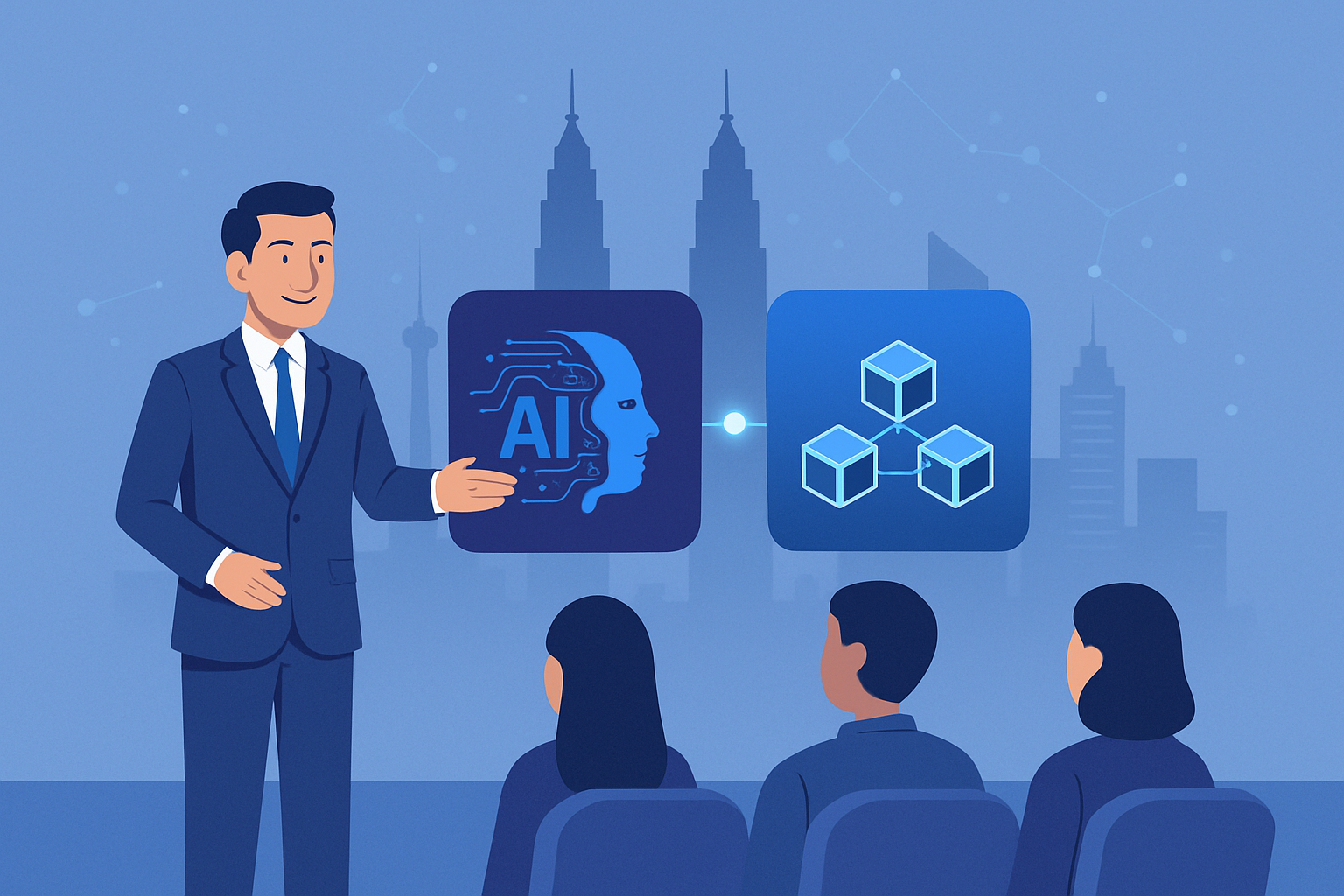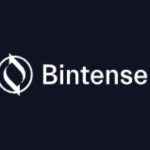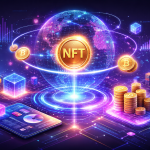NFT & Blockchain
AI Meets Blockchain: A New Frontier In Innovation Showcased At Malaysia’s Premier Tech Summit

Introduction
In a landmark moment for Asia’s growing influence in emerging technologies, Malaysia hosted a groundbreaking tech event that placed the convergence of artificial intelligence and blockchain squarely in the global spotlight. The event, held in Kuala Lumpur, brought together international innovators, venture capitalists, government representatives, and corporate tech giants to explore how AI and blockchain are not only compatible but deeply transformative when integrated.
This convergence comes at a time when Southeast Asia is rapidly positioning itself as a digital hub, leveraging its youthful population, vibrant startup culture, and growing digital economy. From smart city infrastructure to sustainable finance, the event demonstrated how the fusion of AI and blockchain can reshape industries and redefine how societies operate in the 21st century.
Malaysia’s Strategic Vision For Digital Innovation
The Malaysian government, through its Ministry of Science, Technology and Innovation (MOSTI), made it clear that this summit was more than just a showcase — it was a roadmap. Government officials emphasized that innovation in AI and blockchain will be critical to achieving Malaysia’s 2030 Vision, which aims to elevate the nation’s economy into high-income status through digital-first strategies.
Speakers at the event, including national ministers and industry leaders, underscored the importance of cross-border partnerships, digital education, and blockchain-based identity systems. Several local initiatives, such as Malaysia’s National Digital Identity Framework and the newly announced AI Innovation Sandbox, were highlighted as key enablers for tech advancement.
Why The Integration Of AI And Blockchain Matters?
While AI focuses on learning from data, predicting outcomes, and automating decision-making, blockchain centers on trust, transparency, and immutability. When fused, these two technologies offer powerful capabilities — such as secure data provenance for machine learning models, decentralized AI marketplaces, and autonomous smart contracts powered by real-time data analytics.
In one key panel, titled “Intelligence on the Ledger,” executives from IBM, Huawei, and several rising Malaysian tech startups discussed use cases like AI-driven predictive maintenance on blockchain-based supply chains and AI-enhanced blockchain protocols for fraud detection in decentralized finance (DeFi).
One highlight was the demonstration of a prototype system by a Malaysian startup that uses AI algorithms to manage logistics for blockchain-tracked vaccine supply chains. This ensures both real-time tracking and intelligent rerouting based on environmental conditions — something made possible only through the hybrid capabilities of these technologies.
Tech Giants And Startups Collide In The Innovation Arena
Global players such as Microsoft Azure, Google Cloud, and Binance Labs presented their latest AI+blockchain offerings, but perhaps more compelling was the energy from regional startups. Malaysia’s Masverse, Singapore’s SynapseAI, and Thailand’s BlockDNA unveiled tools designed for real-world deployment — from decentralized energy grids to AI-powered legal tech platforms.
The event emphasized not just conceptual potential but practical, deployable systems. Many of the showcased innovations were already in pilot testing with public and private sector partners. AI smart contracts that dynamically adjust based on user behavior were particularly well received, with use cases spanning insurance, energy billing, and micro-lending.
A panel featuring the CEOs of three regional unicorns focused on scalability — how blockchain’s transparency can counterbalance AI’s “black box” problem, and how the decentralization of computing resources can democratize access to powerful AI systems in rural or underdeveloped regions.
Blockchain As The Foundation For Trust In AI Systems
Trust has long been a barrier to widespread AI adoption. From facial recognition controversies to deepfake technology, the public is wary of how data is collected, stored, and used. Blockchain’s role in this landscape, according to multiple speakers, is to provide audit trails, decentralized governance, and unalterable records that hold both AI developers and users accountable.
A widely shared sentiment from the event was that blockchain gives AI systems an ethical anchor — a framework that enables verification without compromising efficiency. Attendees explored blockchain-based reputation scoring for AI agents and decentralized training datasets that avoid the data silos that plague centralized models.
Researchers from the University of Malaya and Tokyo University presented a joint paper showing how combining federated learning (a form of decentralized AI training) with blockchain’s verification layers can both improve model performance and user privacy. This approach was seen as pivotal for fields like healthcare, where data sensitivity is high but predictive AI tools could revolutionize treatment.
Asia’s Rising Role In The Global Innovation Map
Another theme that emerged strongly was the shifting center of gravity in tech innovation. While Silicon Valley remains a dominant force, the Asia-Pacific region, led by countries like Malaysia, Singapore, India, and South Korea, is now setting new trends in regulatory frameworks, funding models, and use-case innovation.
Malaysia’s tech ecosystem is increasingly international. During the summit, venture funds from the United States, Europe, and the Middle East met with over 100 Southeast Asian startups, leading to a reported $45 million in on-the-spot investment pledges. Blockchain-based payment platforms, AI governance frameworks, and decentralized identity systems were the top investment areas.
The collaborative tone between public regulators and private technologists was especially noteworthy. Malaysia’s Securities Commission outlined new guidelines that will allow for tokenized AI services, while the Malaysian Central Bank hinted at a future where AI and blockchain will be core to cross-border payments and smart compliance systems.
Industry Applications That Stole The Show
1. Fintech and DeFi
The most immediate commercial impact discussed was in financial services. Several startups presented blockchain-AI hybrids that perform real-time credit assessments for users with no formal credit history — a breakthrough for financial inclusion. Other fintech tools used AI to detect fraud, while blockchain ensured that all decisions were transparent and audit-ready.
2. Healthcare and Bioinformatics
Health tech innovations included decentralized platforms for AI-driven diagnostics, which allow doctors to validate AI predictions through blockchain audit trails. Malaysian health authorities are piloting a system to manage chronic disease treatments using this model.
3. Energy and Sustainability
Blockchain-led energy tokenization projects were paired with AI systems that optimized renewable energy distribution based on usage data. This combination helps create localized energy markets that are self-regulating and economically efficient.
4. LegalTech and Governance
AI-powered contract review tools were showcased in tandem with blockchain validation to ensure legal documents maintain integrity over time. Legal professionals applauded this as a much-needed advancement in streamlining dispute resolution.
The Global Implications Of Southeast Asia’s Leadership
Malaysia’s event sent a clear message: Southeast Asia is not just consuming global technology — it is actively shaping it. By embracing the integration of AI and blockchain, Malaysia and its neighbors are leapfrogging legacy infrastructure and creating smarter, more secure, and more inclusive digital systems.
The summit concluded with a joint declaration from key participants committing to open collaboration, ethical frameworks, and continuous innovation in these technologies. Delegates were encouraged to view blockchain and AI not as isolated tools, but as converging foundations of the next technological era.
What’s Next For The AI + Blockchain Movement?
Following the event, multiple follow-up announcements have been made. Malaysia’s National AI Roadmap is being updated to incorporate decentralized computing models, while a new ASEAN Blockchain Council has been proposed to align regional efforts in technology governance.
Most importantly, industry sentiment is strong. Investors, developers, and regulators are aligned on the belief that the convergence of blockchain and AI isn’t just a trend — it’s the future of how data, identity, value, and intelligence will be managed globally.
Conclusion
The Malaysia Tech Innovation Event of 2025 marked a significant shift in how the world views the convergence of artificial intelligence and blockchain. Far from being buzzwords or siloed technologies, AI and blockchain are now being treated as complementary systems that, when merged, can address some of the most pressing challenges across industries — from finance and healthcare to energy, logistics, and governance.
Malaysia’s role in this transformation cannot be overstated. By acting as a convener of global talent, regional startups, and supportive policymakers, the country has positioned itself as a catalyst for real, sustainable innovation. The event not only showcased functional prototypes and real-world applications but also highlighted the willingness of both public and private sectors to work together toward a common vision — a digitally resilient, transparent, and inclusive future.











